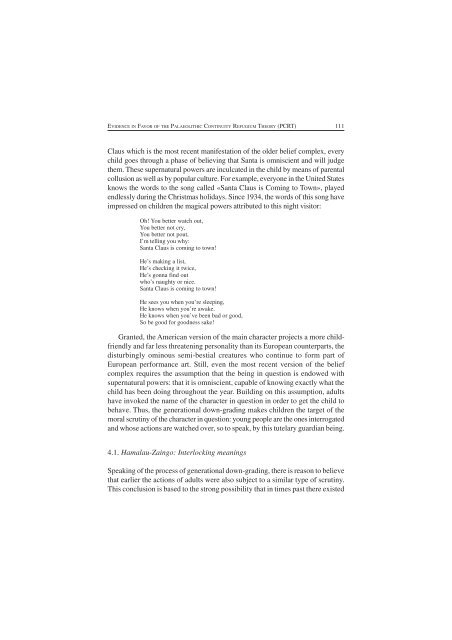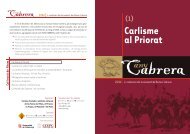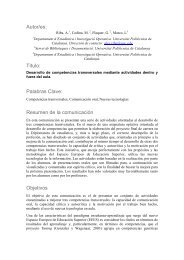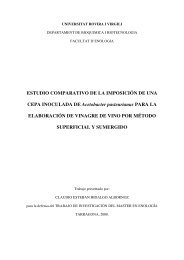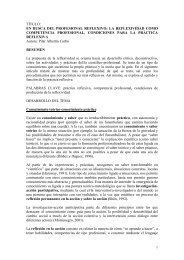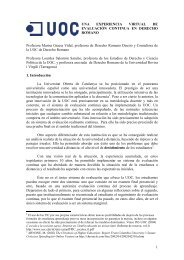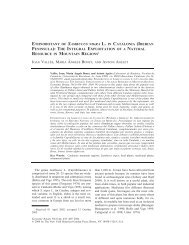Impaginato 5.p65 - Universitat Rovira i Virgili
Impaginato 5.p65 - Universitat Rovira i Virgili
Impaginato 5.p65 - Universitat Rovira i Virgili
Create successful ePaper yourself
Turn your PDF publications into a flip-book with our unique Google optimized e-Paper software.
EVIDENCE IN FAVOR OF THE PALAEOLITHIC CONTINUITY REFUGIUM THEORY (PCRT)<br />
111<br />
Claus which is the most recent manifestation of the older belief complex, every<br />
child goes through a phase of believing that Santa is omniscient and will judge<br />
them. These supernatural powers are inculcated in the child by means of parental<br />
collusion as well as by popular culture. For example, everyone in the United States<br />
knows the words to the song called «Santa Claus is Coming to Town», played<br />
endlessly during the Christmas holidays. Since 1934, the words of this song have<br />
impressed on children the magical powers attributed to this night visitor:<br />
Oh! You better watch out,<br />
You better not cry,<br />
You better not pout,<br />
I’m telling you why:<br />
Santa Claus is coming to town!<br />
He’s making a list,<br />
He’s checking it twice,<br />
He’s gonna find out<br />
who’s naughty or nice.<br />
Santa Claus is coming to town!<br />
He sees you when you’re sleeping,<br />
He knows when you’re awake.<br />
He knows when you’ve been bad or good,<br />
So be good for goodness sake!<br />
Granted, the American version of the main character projects a more childfriendly<br />
and far less threatening personality than its European counterparts, the<br />
disturbingly ominous semi-bestial creatures who continue to form part of<br />
European performance art. Still, even the most recent version of the belief<br />
complex requires the assumption that the being in question is endowed with<br />
supernatural powers: that it is omniscient, capable of knowing exactly what the<br />
child has been doing throughout the year. Building on this assumption, adults<br />
have invoked the name of the character in question in order to get the child to<br />
behave. Thus, the generational down-grading makes children the target of the<br />
moral scrutiny of the character in question: young people are the ones interrogated<br />
and whose actions are watched over, so to speak, by this tutelary guardian being.<br />
4.1. Hamalau-Zaingo: Interlocking meanings<br />
Speaking of the process of generational down-grading, there is reason to believe<br />
that earlier the actions of adults were also subject to a similar type of scrutiny.<br />
This conclusion is based to the strong possibility that in times past there existed


